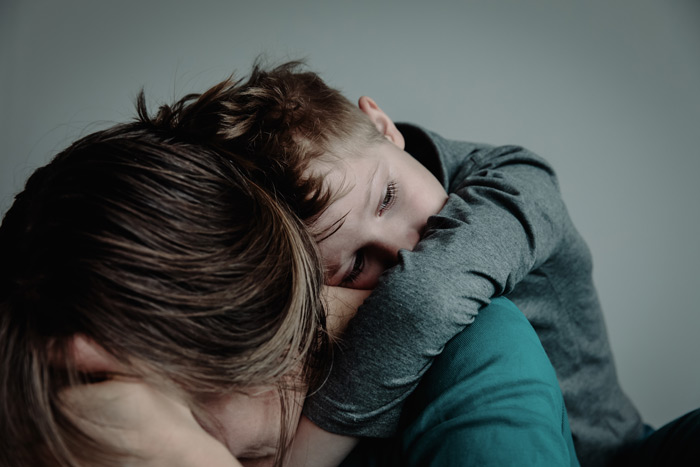If you’re struggling with drug or alcohol addiction, it’s understandable to wonder how your substance use disorder will affect your child. However, just like any other parent-child dynamic, there are multiple factors to consider. Children are not unalterably set to follow in the footsteps of a parent with an addiction, just like how a child who comes from a happy, healthy home can still develop a substance abuse problem.
Early Effects of Parental Addiction
An adult struggling with a substance use disorder is typically struggling to take care of themselves, to keep themselves safe, to use healthy coping mechanisms, to think rationally and to uphold daily responsibilities like a job, household chores, personal hygiene, etc. It is very likely their children will suffer from neglect as they grow up.
While a lack of love and guidance in and of itself is certainly harmful to a child, it is also in that absence that the child will likely develop unhealthy responses to stressful situations. They may exhibit disruptive, destructive behavior and/or codependency.
These unhealthy responses could simply be the result of a child not receiving the support and discipline necessary to learn how to respond appropriately to situations, or they could be the child imitating how they have witnessed their parent act.
According to Alcohol, Health & Research World, children of alcoholics are at high risk for developing alcoholism—even 2-10 times more likely than children of non-alcoholics. Specifically, “Alcoholic fathers tend to increase the risk for alcoholism in both their sons and their daughters, whereas the risk associated with maternal alcoholism seems to be more limited to daughters.”
Alcohol, Health, & Research World summarized their findings into two psychopathology categories of how children of addicts tend to be affected:
- Internalizing Symptoms: developing mental illnesses such as high levels of anxiety and depression
- Externalizing Symptoms: rule breaking, defiance, aggression, inattention, and impulsivity—sometimes categorized as ADHD and oppositional defiant disorder (ODD)
Influence on Behavior as an Adult
The problems associated with parental addiction don’t just affect the early years of a child’s life. According to Twin Lakes Recovery Center, there are effects that often won’t rear their ugly heads until the child becomes an adult and is faced with family dynamics and responsibilities.
This could be because they were never given a role model for how to handle certain situations in a healthy way or simply a result of not having a normal childhood where they had a safe space to make mistakes, learn, and be loved.
Symptoms children may show as adults include:
- Paranoia of their children developing an addiction and of themselves making similar mistakes as their parents did
- Fear of success and of failure
- Forming their identity on external factors (e.g. a successful career)
- Self-loathing
- Low self-esteem
- Trust issues and difficulty being vulnerable with others
- Isolation
- Fear of commitment and/or love
- Being attracted to unhealthy people and situations, having a tendency to want to “rescue” others
- Codependency, with their own happiness and security depending upon that of those they love
There Is Always Hope for a Better Future
There is a great deal of research to support the negative effects of parental addiction, but there are still areas that need further exploration and testing. A characteristic disadvantage of many cause and effect studies is that there are many uncontrollable factors that are difficult to out rule or even be aware of: e.g., family history, outside influences on the child, comorbidities within the parent and/or child, each person’s chemical brain disposition, etc.
Thus, it is important to remember that every family’s situation will be unique to them and to know that there is always hope—for parents and children alike.
In an interview with The Aviary, Joe S. reflects on how being the child of an alcoholic parent impacted his life. When asked what he’d say to a parent who is currently in the same position as his mom was, he said, “Your child cannot confront you about this. You are hurting your children. Wake up and get help. Don’t let shame be the winner here.”
Let your children be your motivation to seek sobriety. If you are struggling with addiction and are ready to begin treatment, we can help. The Aviary Recovery Center offers a comprehensive addiction treatment as well as a family wellness program designed specifically to create a safe, supportive, and educational environment for children of parents in recovery.
(314) 464-0222. We’re here to help.










